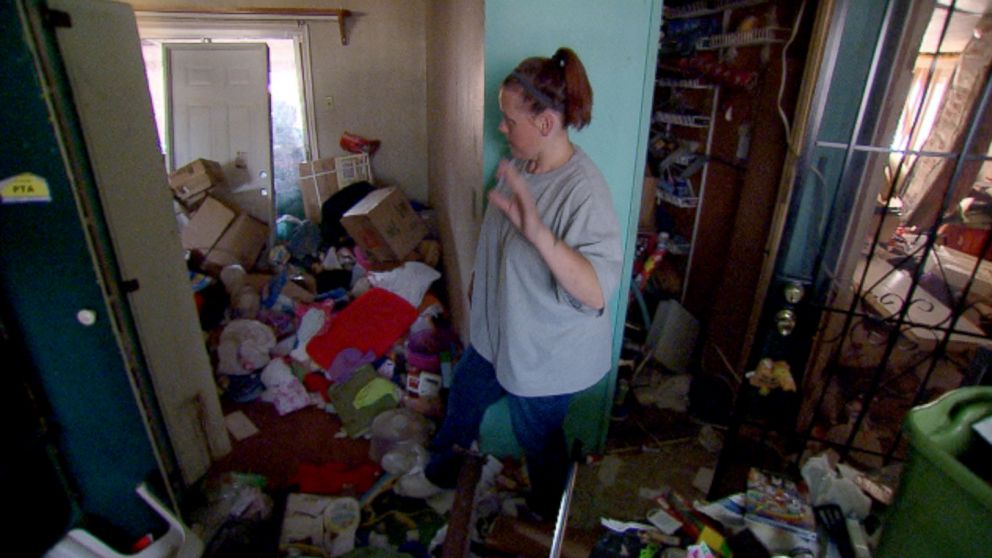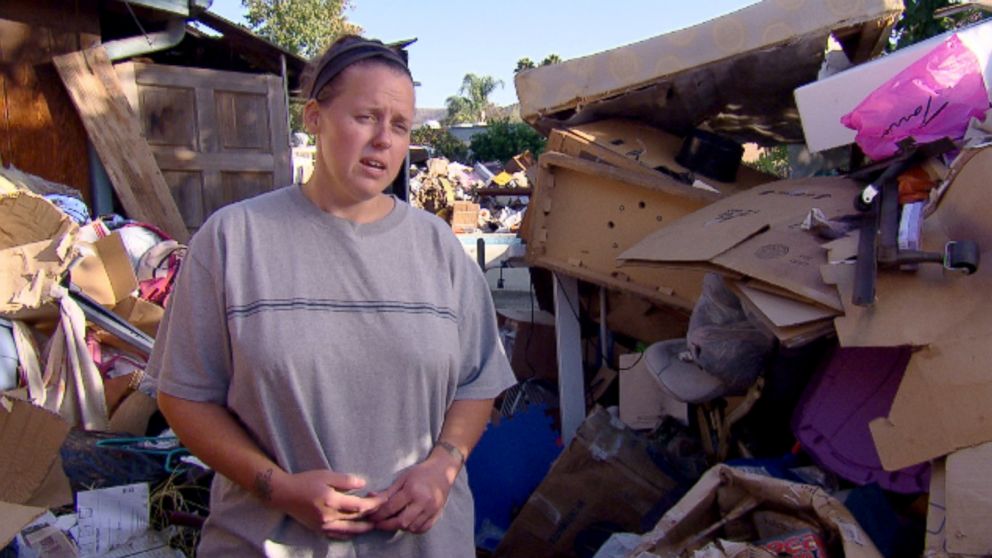Buying Hoarder Homes More Daunting Than the Average Flip
The homes might be priced cheap, but buyers could spend thousands to clean them.
Nov. 14, 2013— -- From the outside, Nancy's townhouse looks like any other in her Southern California neighborhood.
Manicured shrubs line the road and flower boxes are planted in neat rows. But just steps from this idyllic setting is a scene of chaos -- piles of trash, books and magazines dating back three decades, spoiled and expired food and heaps of junk and debris.
Nancy is a hoarder. Just this year, hoarding was added to the Diagnostic and Statistical Manual of Mental Disorders as its own mental disorder, "Compulsive Hoarding Disorder." Hoarding affects an estimated two to five percent of the population, according to the American Psychiatric Association.
The 72-year-old said she's become so used to her environment she doesn't even see the mess.
"It just accumulates. You get used to things," she told 20/20. "As long as you can maneuver through, you don't really even particularly notice it."
Nancy spends her days sitting on her bed doing crossword puzzles and watching TV. Surrounded by piles of magazines, mail and ancient bills, every surface of the room is covered with clutter and a thick layer of dust. It may be livable to Nancy, but the fire department determined her home was a massive fire hazard.

Darren Johnson is a fire inspector in Orange County. He goes door-to-door to hoarder's homes, offering support and professional cleaning services to help them keep their homes from being condemned.
"We try to do everything we can to assist the person," Johnson told ABC News' Cecelia Vega. "I try to educate them in what they're doing, and that what they're contributing to is not the best not only for them, but for their surrounding neighbors."
It seems impossible that homes like these could be hidden gems, but that's exactly what real-estate developer Roger Faulkner sees when he makes an offer on a hoarded home. Faulkner owns RBD Ventures, a real estate firm specializing in fixing up and reselling "distressed homes."
"Nobody in their right mind would come in here and say, 'I can fix this up,'" Faulkner told 20/20 about buying a hoarder home. "You would be out of your mind to try to take a project like this on."
Kira is Faulkner's most recent client. Her two-bedroom, one-bath home was filled to the ceiling with clothing, toys and trash. When the house was too full, the mess spilled into the yard and into the pool, leaving a minefield of rotting cardboard boxes and broken-down appliances. An impending foreclosure forced Kira to sell her home and move to Colorado, where she now lives with her mother and young daughter.
"Most people would walk into this house and say, 'Oh, my God, just get out of here. I don't want anything to do with this,'" Faulkner said about Kira's home.
More daunting than your average flip, Faulkner estimated that he will need to spend a minimum of $75,000 just to clean out the house and bring it up to code.

But Faulkner knows that underneath the mountains of debris is the potential for a pile of money.
"We have to be able to sell this and make a profit at the end of the day," he told 20/20.
"For someone to want to be in this business, there has to be a profit, and especially this business, because there are a lot of unknowns."
Faulkner says empathy and understanding also play a large part in his business.
"You could say, 'Oh, my God,'" he told 20/20. "[But] my biggest thing is that people were living here, and I feel sorry for them."




